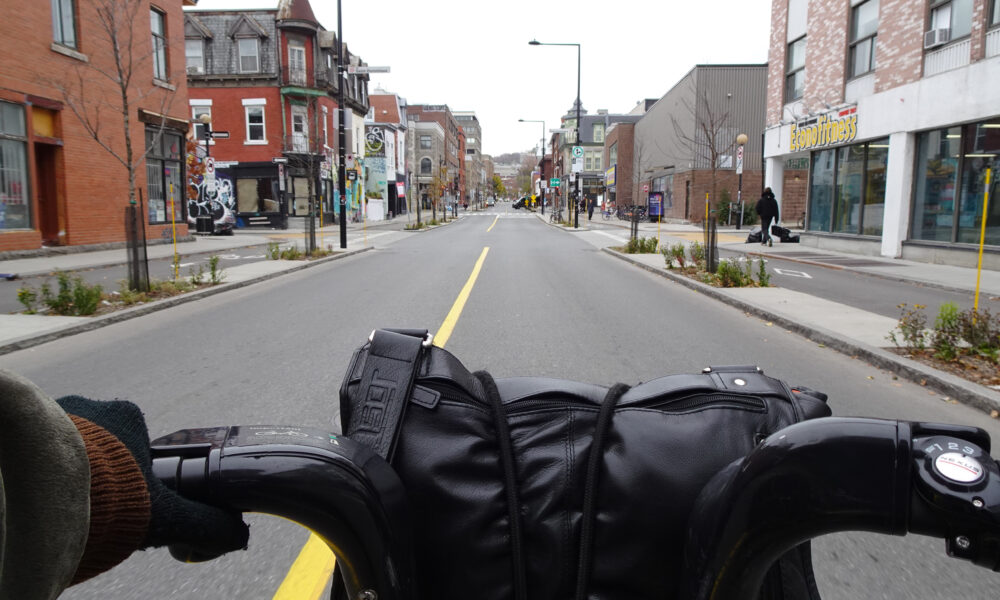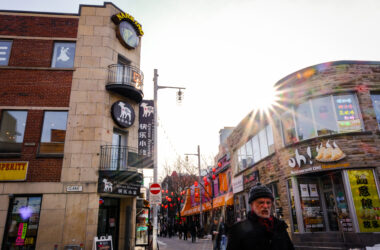November usually marks the beginning of the frigid, seemingly everlasting Montreal winter. Dropping temperatures and the end of Daylight Savings Time are usually a wake-up call for city-dwellers to finally say goodbye to their bikes. But as Montrealers everywhere prepare for hibernation, BIXI bikes will sit—or ride—this one out. Last April, Montreal’s only public bicycle-sharing system announced an extension of its services through the winter months. Although the company usually ceases its operations in mid-November, its new year-round program will allow residents, for the first time, to BIXI during the colder months. This new initiative follows those in other North American cities such as Toronto and Chicago, where citizens experience similar, albeit milder, winters.
Bikes at every corner? Think again.
For those used to readily available BIXIs, the company’s winter program will work a little differently: Bikes will only be accessible in seven of the cities’ boroughs. These include Ahuntsic-Cartierville, Villeray–Saint-Michel–Parc-Extension, Mercier–Hochelaga-Maisonneuve, Rosemont–La Petite-Patrie, Plateau-Mont-Royal, Ville-Marie, and the Southwest. BIXI’s year-round station map, available on its website, pinpoints the exact spots where bike stations will be located. Unsurprisingly, they are mainly focused downtown and adjacent to certain metro stations in the Plateau.
So, will students turn to BIXIs?
The extension of BIXI’s regular services into the colder months of the year is a game-changer for students who rely on public transportation to get to and from campus each day. As great as all of this sounds though, an obvious barrier remains: Montreal’s biting weather conditions.
After all, there is a reason that BIXI refrained from introducing this initiative for so long. The city’s weather pattern of strong winds, blizzards, and iced pavements is difficult enough to cope with on two feet… let alone on two wheels. However, BIXI seems committed to overcoming that challenge. Its regular bikes will be equipped with studded tires and non-slip pedals—features which are essential for safe winter biking. Electric BIXIs, for their part, won’t make a reappearance until next spring.
Despite BIXI’s plan to provide Montrealers with safe equipment, the city must also be committed to regular road and bike path maintenance. Cyclist safety remains an ongoing issue in Montreal as the city saw a 22.7 per cent increase in bike-related injuries in 2022. These numbers only threaten to increase as layers of snow, ice and slush appear are added to the equation.
Is “BIXI-ing” truly a worthwhile option?
Unlike the Société de Transport de Montréal’s (STM’s) public transportation services, which offer discounted student passes for bussing and taking the metro, BIXI has yet to introduce a student-friendly discount on their services. Monthly memberships are currently priced at $20, and seasonal memberships amount to $99.
This is somewhat justifiable, considering that BIXI’s summer services are extremely reliable: with over 884 bike stations, customers are almost always guaranteed to find bikes within walking distance during the regular season. However, BIXI’s new year-round program is set to reduce the number of bike stations available during the winter months: Only 150 stations will continue their operations—18 per cent of the company’s usual number of available stations. Despite this, membership rates are somehow identical to those applicable during the regular BIXI season. This raises the question as to whether these costs will end up being worth it, as access to the service will certainly change.
Montreal’s everlasting winters have become synonymous with over-crowded buses and metros, but year-long biking suggests that, perhaps, Montreal’s public transport scene will look a little different in the future. The question remains, however, as to whether Montreal’s spring-and-summer-only bikers will be persuaded by this change.









